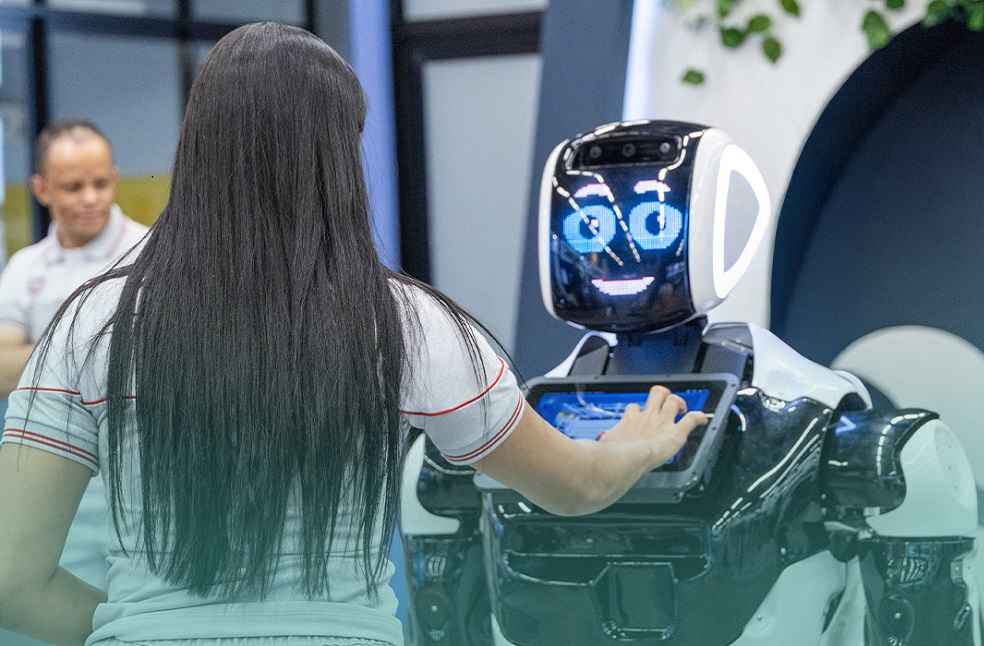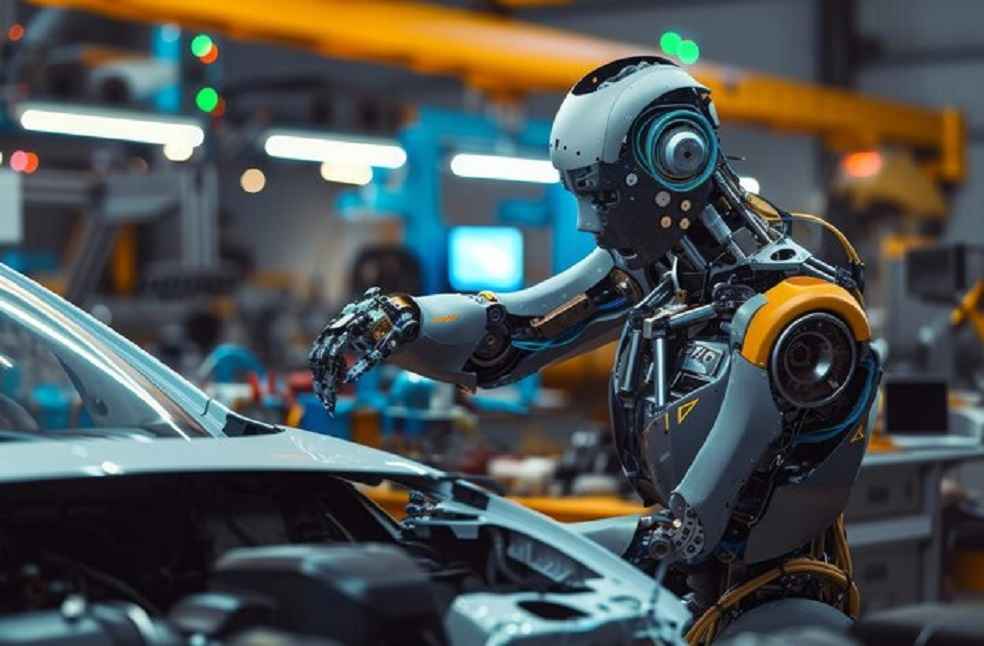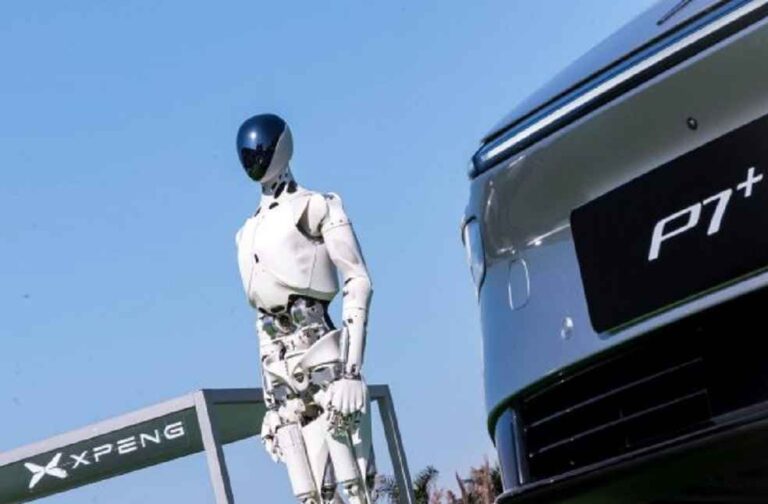Chinese automakers are expanding into the robotics sector as they search for new growth engines and look to leverage their supply-chain capabilities in emerging high-tech industries.
The shift aligns with the country’s focus on developing ‘new quality productive forces,’ a priority that is reshaping investment across advanced manufacturing.
In Guangzhou, a humanoid robot built by state-owned Guangzhou Automobile Group has begun assisting passengers at Huangcun subway station. The robot guides commuters and supports security checks as part of the city’s pilot program for intelligent service robots.

Earlier this month, electric-vehicle maker XPeng introduced its second-generation Iron humanoid robot. Equipped with three Turing AI chips and 62 active joints, the machine can walk, speak, and perform everyday tasks with near-human-like movement, sparking significant online interest.
XPeng chairman He Xiaopeng said he expects many Chinese automotive companies to enter the field of physical AI over the next decade and position themselves as global competitors in embodied intelligence.
In Geely’s Zeekr 5G smart factory in Ningbo, Zhejiang Province, large numbers of advanced humanoid robots work together on the production lines, handling tasks such as material sorting, box transport, and precision assembly of car components.
Their coordinated operation signals a new phase of human-like collaboration in manufacturing.

These Walker S1 robots, created by Shenzhen-based UBTECH, represent a major breakthrough. It is the first instance where multiple humanoid robots have been simultaneously trained to perform varied tasks and navigate complex zones inside an actual factory setting.
Their coordination is powered by UBTECH’s ‘brain network’ system, which links the machines into a unified, synchronised workforce rather than isolated units.
Industry officials caution that the sector remains in an early stage and requires coordinated planning.
Song Xiaogang, secretary-general of the robotics branch of the China Machinery Industry Federation, urged companies to conduct detailed feasibility studies to prevent duplicated investment and unnecessary waste as more firms move into the industry.
GENERAL | Mazda2 Receives 2026 Update with Added Tech and Performance Upgrades





